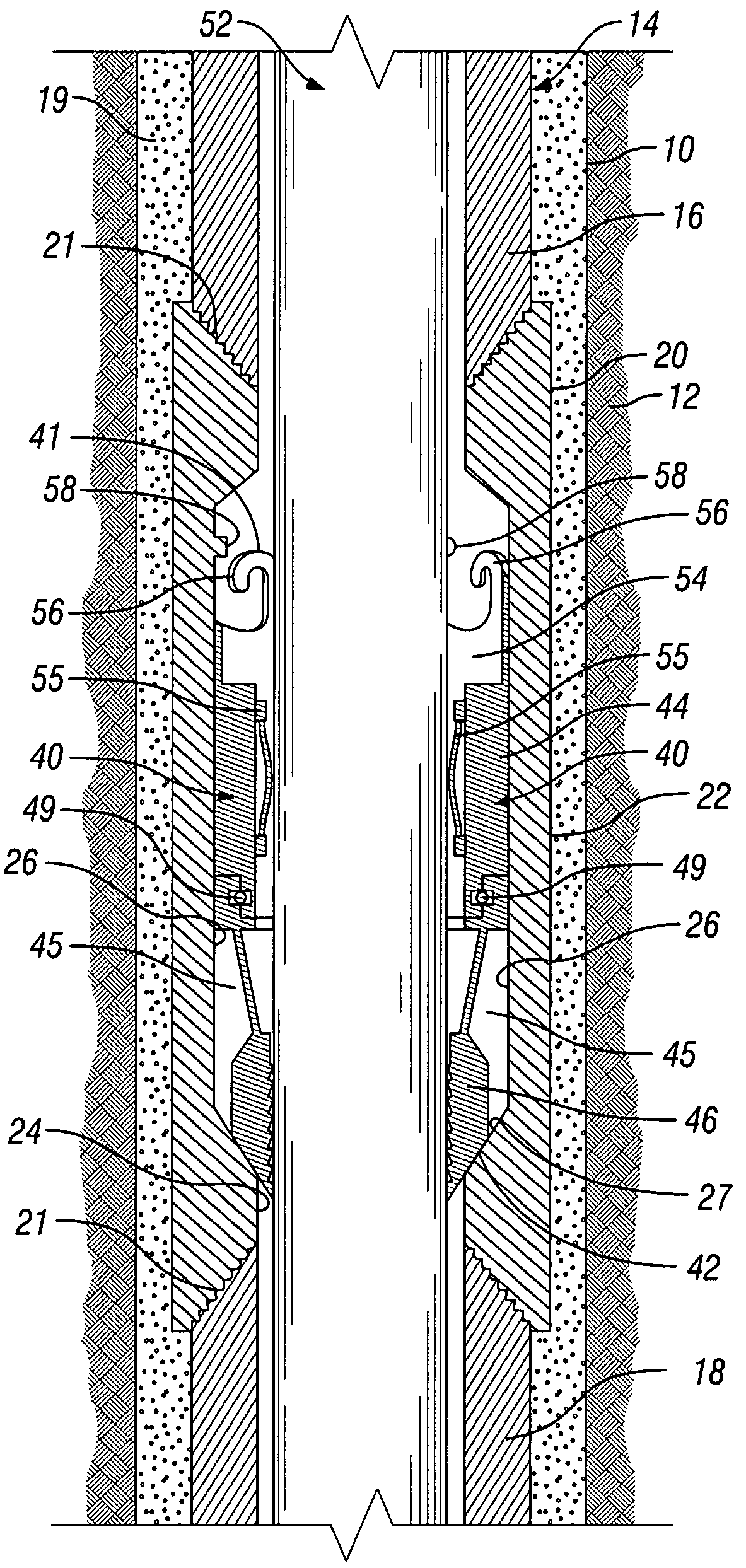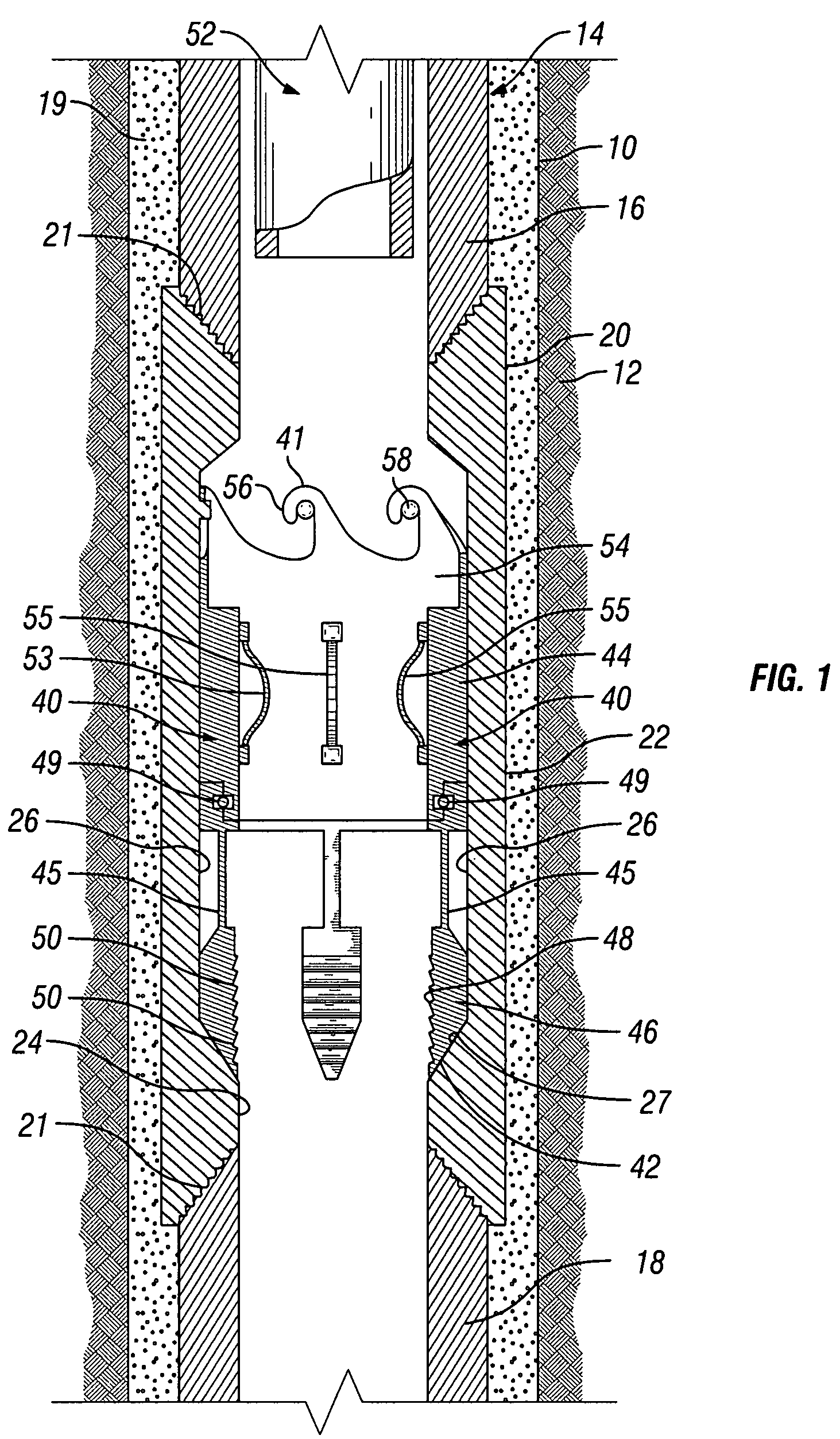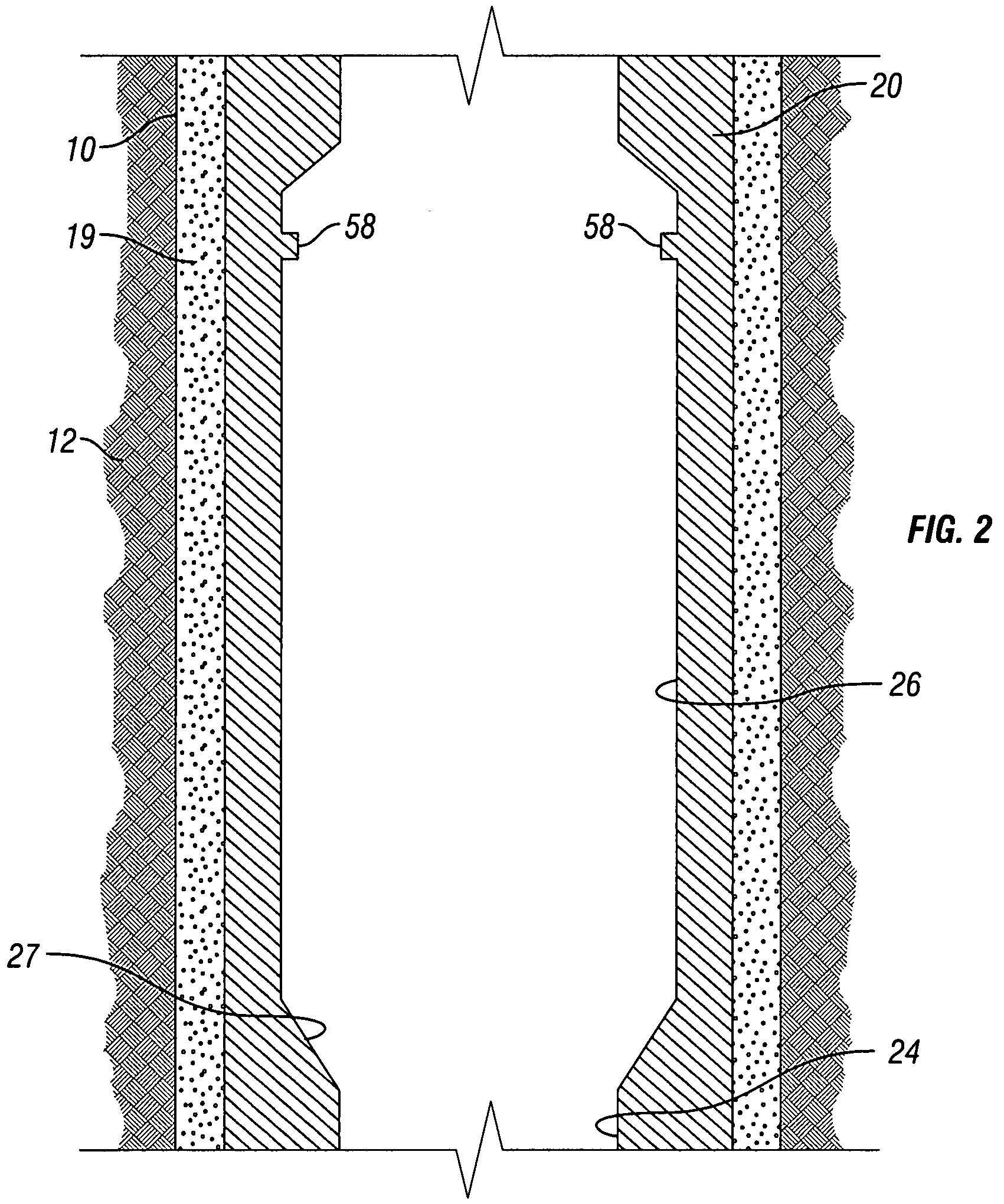Casing coupler liner hanger mechanism
a technology of hanger mechanism and coupler, which is applied in the direction of fluid removal, tubing catchers, borehole/well accessories, etc., can solve the problems of high manufacturing cost, frequent rotation of circumference pistons, and limited maximum working pressure, and achieves easy assembly and disassembly of liner hangers. , the effect of small appreciable reduction in the useable area
- Summary
- Abstract
- Description
- Claims
- Application Information
AI Technical Summary
Benefits of technology
Problems solved by technology
Method used
Image
Examples
Embodiment Construction
[0034]Referring now to FIGS. 1-9, the invention is described broadly with respect to wellbore 10 disposed within formation 12 having casing string or casing 14 disposed therein. Casing string 14 includes upper casing section 16 and lower casing section 18. Upper casing section 16 is supported at its upper end, either directly or indirectly though another piece of casing or by a wellhead assembly. Collar or coupler 20 connects upper casing section 16 with lower casing section 18 using any method or device known to persons of ordinary skill in the art, such as by threads 21. Casing string 14 and coupler 20 are secured within formation 12 by cement 19. Upper casing section 16 and lower casing section 18 have the same inner and outer diameters.
[0035]Coupler 20 includes an outer wall surface 22 defining an outer diameter and an inner wall surface 24. Inner wall surface 24 includes recess or pocket 26 defined by an enlarged inner diameter between two smaller inner diameters—one above and ...
PUM
 Login to View More
Login to View More Abstract
Description
Claims
Application Information
 Login to View More
Login to View More - R&D
- Intellectual Property
- Life Sciences
- Materials
- Tech Scout
- Unparalleled Data Quality
- Higher Quality Content
- 60% Fewer Hallucinations
Browse by: Latest US Patents, China's latest patents, Technical Efficacy Thesaurus, Application Domain, Technology Topic, Popular Technical Reports.
© 2025 PatSnap. All rights reserved.Legal|Privacy policy|Modern Slavery Act Transparency Statement|Sitemap|About US| Contact US: help@patsnap.com



